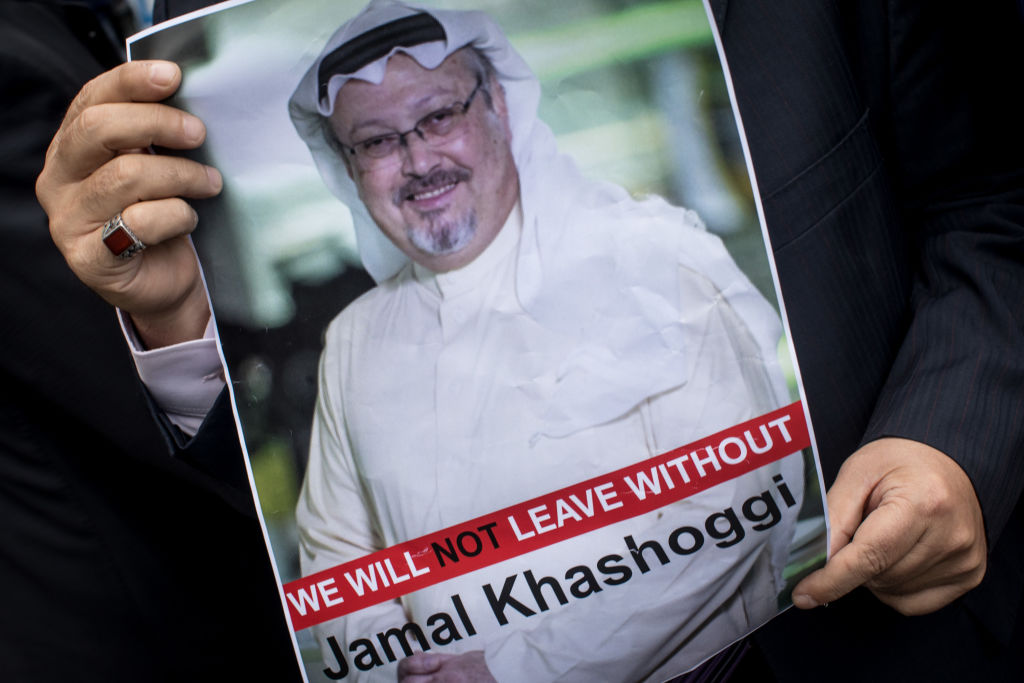In final column, Jamal Khashoggi stresses the importance of 'free expression' in the Arab world


A free daily email with the biggest news stories of the day – and the best features from TheWeek.com
You are now subscribed
Your newsletter sign-up was successful
The Washington Post published Jamal Khashoggi's presumptive final column on Wednesday, with a somber note from Global Opinions editor Karen Attiah.
Attiah wrote that she received the column, titled "What the Arab World Needs Most is Free Expression," from Khashoggi's translator and assistant one day after he was reported missing in Istanbul earlier this month. The Post didn't publish it right away, Attiah explained, hoping she and Khashoggi could edit the column together, but "now I have to accept: That is not going to happen. This is the last piece of his I will edit for the Post. This column perfectly captures his commitment and passion for freedom in the Arab world. A freedom he apparently gave his life for."
In the column, Khashoggi discusses the 2018 Freedom of the World report, which declares that just one country in the Arab world, Tunisia, can be classified as "free." Three other countries are "partly free" and the rest are "not free," which Khashoggi found unacceptable. "Arabs living in these countries are either uninformed or misinformed," he said, leaving them "unable to adequately address, much less publicly discuss, matters that affect the region and their day-to-day lives."
The Week
Escape your echo chamber. Get the facts behind the news, plus analysis from multiple perspectives.

Sign up for The Week's Free Newsletters
From our morning news briefing to a weekly Good News Newsletter, get the best of The Week delivered directly to your inbox.
From our morning news briefing to a weekly Good News Newsletter, get the best of The Week delivered directly to your inbox.
He wrote about the crackdown on writers and newspapers in Saudi Arabia and Egypt, and the importance of providing a "platform for Arab voices." People are facing poverty, poor education, and mismanagement, he concluded, and if there could be a forum "isolated from the influence of nationalist governments spreading hate through propaganda, ordinary people in the Arab world would be able to address the structural problems their societies face." Read the entire column at The Washington Post.
A free daily email with the biggest news stories of the day – and the best features from TheWeek.com
Catherine Garcia has worked as a senior writer at The Week since 2014. Her writing and reporting have appeared in Entertainment Weekly, The New York Times, Wirecutter, NBC News and "The Book of Jezebel," among others. She's a graduate of the University of Redlands and the Columbia University Graduate School of Journalism.
-
 Tourangelle-style pork with prunes recipe
Tourangelle-style pork with prunes recipeThe Week Recommends This traditional, rustic dish is a French classic
-
 The Epstein files: glimpses of a deeply disturbing world
The Epstein files: glimpses of a deeply disturbing worldIn the Spotlight Trove of released documents paint a picture of depravity and privilege in which men hold the cards, and women are powerless or peripheral
-
 Jeff Bezos: cutting the legs off The Washington Post
Jeff Bezos: cutting the legs off The Washington PostIn the Spotlight A stalwart of American journalism is a shadow of itself after swingeing cuts by its billionaire owner
-
 Nobody seems surprised Wagner's Prigozhin died under suspicious circumstances
Nobody seems surprised Wagner's Prigozhin died under suspicious circumstancesSpeed Read
-
 Western mountain climbers allegedly left Pakistani porter to die on K2
Western mountain climbers allegedly left Pakistani porter to die on K2Speed Read
-
 'Circular saw blades' divide controversial Rio Grande buoys installed by Texas governor
'Circular saw blades' divide controversial Rio Grande buoys installed by Texas governorSpeed Read
-
 Los Angeles city workers stage 1-day walkout over labor conditions
Los Angeles city workers stage 1-day walkout over labor conditionsSpeed Read
-
 Mega Millions jackpot climbs to an estimated $1.55 billion
Mega Millions jackpot climbs to an estimated $1.55 billionSpeed Read
-
 Bangladesh dealing with worst dengue fever outbreak on record
Bangladesh dealing with worst dengue fever outbreak on recordSpeed Read
-
 Glacial outburst flooding in Juneau destroys homes
Glacial outburst flooding in Juneau destroys homesSpeed Read
-
 Scotland seeking 'monster hunters' to search for fabled Loch Ness creature
Scotland seeking 'monster hunters' to search for fabled Loch Ness creatureSpeed Read
